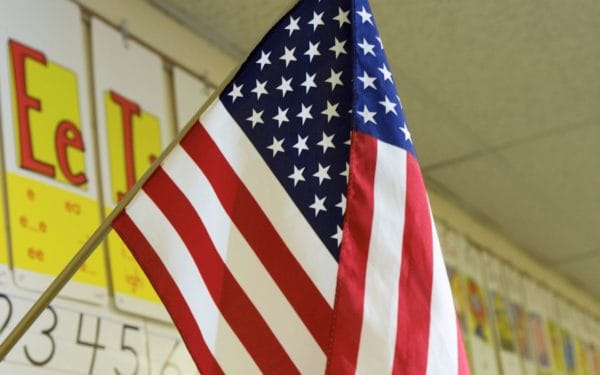January 7, 2021
By Aleta Margolis, Founder and President, Center for Inspired Teaching
In the past 24 hours, an angry pro-Trump mob stormed the US Capitol Building, forcing Members of Congress to evacuate the chamber in the midst of the vote to certify the results of the US Presidential election. A woman inside the Capitol was shot and killed. A Confederate flag was waved inside the Capitol, and an American flag outside the Capitol was replaced by a Trump flag. Members of the media were attacked outside the Capitol, their cameras and equipment vandalized; other members of the media were forced to shelter in place inside the Capitol for hours. Washington, DC and surrounding areas, where many of our readers teach, were under curfew starting at 6pm.
Washington Post reporter James Hohmann called it, “one of the darkest days in American history.”
This morning, like every morning, it’s time to go to school and learn.

On November 4, 2020, the day after the US Presidential election, students from across the DC region reported that they did not discuss the election in school. Not at all. (I wrote about this in Hooray For Monday on November 9, 2020, and offered recommendations for how to have courageous conversations with your students.)
Today, we need to do better by our students.
A student in Inspired Teaching’s Speak Truth program recently proclaimed, “We deserve the provocative!” And she’s right. These are scary times, and discussing scary things is hard to do – especially with students. But talking about, and learning about things that matter is what students want, need, and deserve to do in school.
So teachers, talk with your students about the unprecedented events we’re in the midst of experiencing, about the history that’s being made right at this moment.
Looking for ideas about what to say to your students? Start with questions. Here are some to help you begin:
For students of all ages, elementary through high school:
- How are you feeling? Is it a familiar feeling or an unfamiliar one? Is it easy to name how you are feeling, or is it hard to do?
- Can you think of a time you did something wrong, something that hurt someone else – and you had the courage to admit you were wrong? How did that feel?
- Have you ever tried to mend fences with someone you disagree with?
- Can you think of a time when something bad happened that ended up bringing people together – in history, in a book or movie, in your own life?
- What does being brave mean to you?
For middle and high school students:
- What do you know about the events of yesterday? What do you want to understand better?
- How do you think the Members of Congress felt last night when they returned to the chamber after having had to evacuate?
- Imagine yourself 50-60 years from now, speaking with your grandchildren about the events of yesterday. What do you think you’ll tell them? What will you want them to learn from these events?
- Where do your rights interfere with the rights of others?
- When Congress reconvened last night after hours of lockdown, a number of Senators and Congresspeople stood up to speak. What do you think they might have been feeling as they spoke?
For high school students:
- Who does the US Capitol belong to?
- Some have said that yesterday was a turning point in our country. Do you believe we’re at a turning point? Why or why not? Can you think of other times in history that have been turning points in the history/trajectory of a society?
- Last night Senator Cory Booker pointed out that, before now, the only time the US Capitol had been breached was during the War of 1812 when the British army burned it to the ground. He went on to point out that while our then-adversaries from another country invaded the Capitol in 1812, on January 6, 2021, “we brought this hell upon ourselves.” What do you think he meant by this? Who is the “we” in his statement?
Here are some resources to support teachers and parents in talking with children about difficult subjects:
- How to talk to your kids about the chaos at the Capitol from National Geographic
- Talking to Children About Violence: Tips for Parents and Teachers from the National Association of School Psychologists
- An age-by-age guide on how to talk about difficult topics with your children from Motherly and Common Sense Media
Tonight, at 6pm, we’ll convene high school students from across the DC region for Speak Truth where they will engage in a student-led discussion about the events of the past 24 hours. You’re invited to join us, to listen to our young people, and to experience an example of student-led discussion that immerses learners in the issues of our times.
Whether or not you join us via Zoom for Speak Truth, join us in stepping into the role of Instigator of Thought and in talking with students about the things that matter. Invite your students to participate in the history that’s being made right now. Talk to them, and with them.
The young people who are currently high school, middle school, and elementary school students will be our country’s leaders in the not so distant future. It’s our job as teachers to support them as they learn to lead, starting today.
In appreciation of the work you do,
Aleta Margolis
Founder and President, Center for Inspired Teaching
